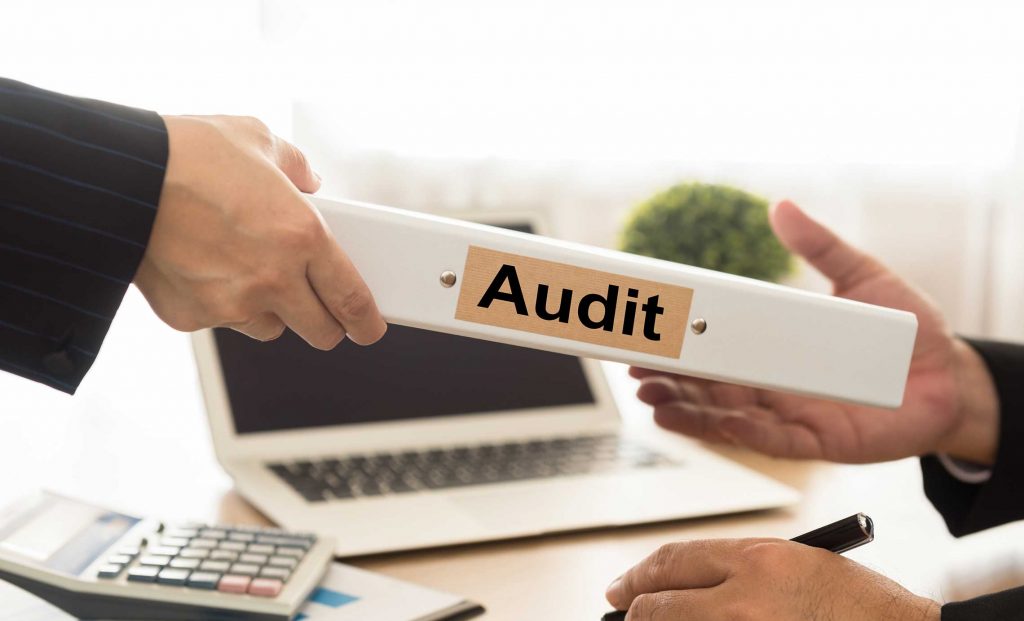
When it’s time for you to bring in the expertise and guidance of an external auditing firm in Dubai or anywhere in the globe, responsiveness and preparation are crucial in ensuring the process of audit is as painless and smooth as possible. This is regardless of whether an audit is for a regulatory tax authority, investors, or lenders.
There is absolutely nothing worse than receiving a call from the UAE Federal Tax Authority or any regulator about being ready for an audit when you aren’t. The schedules of auditors are packed and pushing them off will only cause chaos and hefty fines.
Table of Contents
Preparations for a Business Financial Audit
So, how exactly can a company make a scheduled audit less painful? Read on as we’ve listed the top tips you need in making sure you’re audit-ready at all times.
1. Make the preparations your absolute priority

Source: pexels.com
This is especially when you know the audit is already scheduled. Anticipating the inquiries and document requests of an auditor is important. Auditors, especially from local tax authorities, typically ask your business to provide them with a specific set of documents from a particular financial period. Auditors can accept client arranged calendars or copies for certain things like fixed asset ledgers and bank reconciliations. In order to confirm the other items, plus invoices, bank statements, and leases, they will need to see the real source documents.
When an auditor will change a request is in a simple of the transactions that are randomly selected in testing the account balances. Component of wonder most definitely is a tool of auditors for making bookkeepers truthful.
Make for an auditor’s questions by comparison the financial statements from previous financial periods to the current one. An auditor is possible to be enquiring the company management or its financial department regarding line items which have been changed materially. For minor businesses, materiality might be inquiring about stuffs which changed by more than ten to twenty percent.
2. Review adjustments
Rereading adjustments that auditors made from previous financial periods can help give insight on what will be adjusted for an impending audit engagement. The adjustments can include modifying unrealistic estimates, omissions, and accounting mistakes. Internally organized financial records may require similar modifications to comply with the generally accepted principles on accounting.
An auditor may recommend writing off a bad debt, supplies accounts for the capitalizable items, record accrued depreciation and expense, and evaluate repairs. Making the routine adjustments prior to a scheduled financial audit by tax authorities or an external audit firm in Dubai/UAE will save time and help reduce any discrepancy between the financial and preliminary financial statements.
3. Prepare the employees for the financial audit

Source: missionbox.com
Make sure that your employees are fully aware of the dates for the scheduled audit, including those who won’t be engaged directly in the process. Additionally, inform them of the criteria, objective, and scope of the financial audit. Communicate the details which an auditor or audit firm will need to review from each relevant department. Ensure that all the maintained and appropriate records are ready and accessible by the staff easily, especially the employees that are responsible for them.
Lastly, make sure all the documents are thoroughly reviewed by relevant responsible individuals. if the company standards, policies and processes were followed, then that is how you know your financial reports and other documents which auditors may need are ready. If possible, name one person in your company who will be acting as the point of contact of the local tax authority or external auditors. Make sure that everyone in the company is fully aware of who the point of contact is as the individual may need help from the rest of the employees for documents, evidence, and other relevant materials.
4. Set a pre-audit meeting
The point of contact for auditors including the staff members who belong to your audit oversight group should meet with auditors prior to the audit. This is referred to as a pre-audit meeting. The purpose is to develop a timeline which explains the documents which staff needs to submit and by when; and to ask guidance on the various documentation that auditors will review. The types of documents that auditors may request can be extensive; however, the list often remains consistent from a financial period to the next.
This is unless the business activities of the company changed significantly. Staff who’ll be responsible in standing ready for assisting auditors should attend the meeting and the representatives of the board or audit committee. It is also help if the Chairman of the Board or Chair of an audit committee attends.
5. Bring in some experts

Source: corporatefinanceinstitute.com
Audits can be stressful, especially if you are preparing for a tax audit that will be conducted by the authorities. Having an external audit firm helping you through the process will allow you to manage the impending audit efficiently. If you are facing an audit or you need to be more prepared for it in the future, it is advised that you consult with experts.
What About Voluntary Audits?
A voluntary audit refers to a financial examination conducted by an independent auditor at the request of an organization, even though it is not legally required to do so. In contrast to statutory audits, which are mandatory and often required by law or regulation, a voluntary audit is initiated by the organization itself for various reasons.
The primary purpose of a voluntary audit is to provide assurance and credibility to the organization’s financial statements. By undergoing an audit voluntarily, a company demonstrates transparency and a commitment to accountability, which can enhance its reputation and instill confidence among stakeholders such as investors, lenders, and customers. The audit process involves a comprehensive review of financial records, internal controls, and accounting practices to ensure accuracy, compliance with applicable standards, and the identification of potential areas for improvement.
Additionally, a voluntary audit can help an organization identify weaknesses in its financial systems and processes, allowing management to take proactive measures to address any issues before they become significant problems. It can also assist in identifying areas of inefficiency, leading to potential cost savings and improved operational performance.
Moreover, a voluntary audit can be valuable for organizations seeking external financing or considering mergers and acquisitions. Lenders and potential business partners often require audited financial statements as part of their due diligence process, and having a voluntary audit readily available can streamline these transactions and enhance the organization’s credibility.
Do’s and Don’ts During a Financial Audit
Do’s
- Recognize that the auditors are experts that know exactly what to look for.
- Be exposed and true.
- Recognize the purpose for an assessment of the associated records even prior to the interviews of the company administration.
- Realize that auditors may not be specialists on a focus matter.
- Enquire the auditors in clarifying a request or query if you are confused about it.
- Reply only to a query that was questioned. When answering, keep your reply as straight and simple as possible.
- Attend carefully to the financial auditors. Recognize each query fully before you answer. Make sure that your replies are correct and comprehensive.
- Limit all the comments you make for parts where you only have firsthand information.
Don’ts
- Don’t risk or reply a hypothetical query.
- Don’t accept or reject if they’re opinions.
- Don’t ramble or offer unrelated info e.g. workplace gossip.
- Don’t sign anything in place of another person
- Don’t get offended if you’re interviewed regarding company policies and procedures.
- Don’t treat auditors as your go-to people for venting your frustrations.
To prepare for an impending financial audit, seek the help and guidance of professionals such as Farahat & Co.







